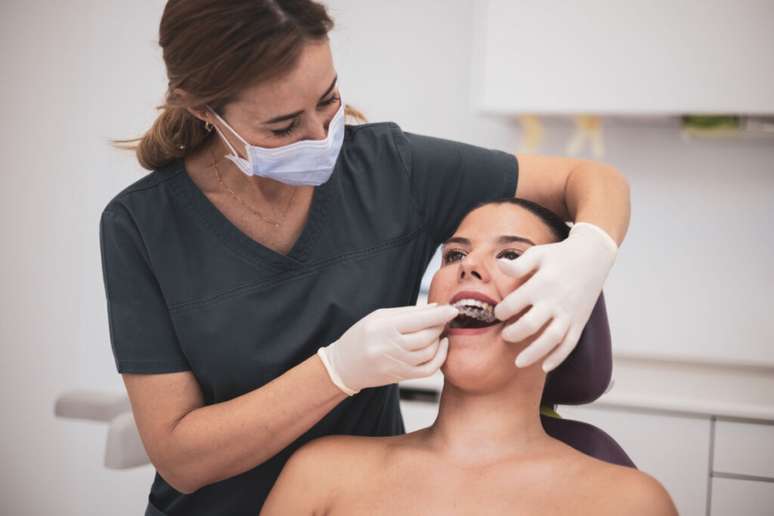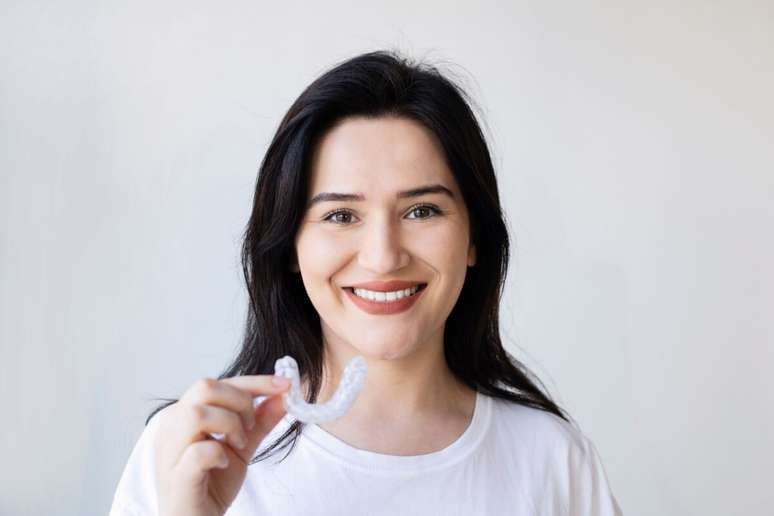The expert explains how this disorder can affect the patient’s quality of life
Bruxism is an oral health problem characterized by the repetitive contraction of the muscles responsible for chewing. This activity can occur both during sleep and during the day and is controlled by the central nervous system.
html[data-range=”xlarge”] figure image img.img-6f009d9fe7863c45889da760eeac0ffc3kwc3env { width: 774px; height: 516px; }HTML[data-range=”large”] figure image img.img-6f009d9fe7863c45889da760eeac0ffc3kwc3env { width: 548px; height: 365px; }HTML[data-range=”small”] figure image img.img-6f009d9fe7863c45889da760eeac0ffc3kwc3env, html[data-range=”medium”] figure image img.img-6f009d9fe7863c45889da760eeac0ffc3kwc3env { width: 564px; height: 376px; }
Causes and symptoms of bruxism
OR disturb it can be associated with several factors, such as sleep apnea events, gastroesophageal reflux, medication use, and anxiety. Dental surgeon Bruna Conde, a specialist in sleep dentistry and temporomandibular disorders, explains that people who suffer from bruxism often clench and grind their teeth, protrude their jaw and stiffen their jaw muscles.
In this context, those activities that involve crunches, strains, etc. it can cause a number of oral health problems. Among them, it is possible to mention facets of wear, dental wear, dental erosion, dental trauma, dental cracks and fractures, the presence of mandibular torus (growing bony prominence), edentulous tongue, linea alba in the mucosa and muscle fatigue, among others.
forms of treatment
Sleep dentistry focuses on the diagnosis and treatment of sleep disorders such as bruxism. Professionals in this field can help you identify the underlying causes of the condition and work with you to develop a personalized treatment plan that meets your needs.
“A common treatment for bruxism is the use of a mouth guard, such as a bite plate. These devices help to protect your teeth wear and tear caused by disease. In addition, there are other techniques that can be used to relieve the symptoms of bruxism, such as physiotherapy, cognitive behavioral therapy and professionally guided medications,” comments Dr. Bruna Conde.

Changes in quality of life
It is important to remember that bruxism can have a significant impact on your quality of life, impairing your ability to sleep well and causing jaw, head and neck pain and discomfort throughout the day. Therefore, if you suspect that you suffer from bruxism, do not hesitate to seek out a dentist specializing in sleep dentistry and DTM expert and orofacial pain to improve the condition.
“If you suffer from bruxism, it is important to seek help from a dentist trained in sleep dentistry and a specialist in TMD and orofacial pain. With proper treatment, it is possible to alleviate the symptoms of bruxism and prevent the clinical consequences that can not let this behavior generates these consequences, take care of your oral health and seek professional help,” concludes Dr. Count Brown.
By Gabriela Dallo
Source: Terra
Ben Stock is a lifestyle journalist and author at Gossipify. He writes about topics such as health, wellness, travel, food and home decor. He provides practical advice and inspiration to improve well-being, keeps readers up to date with latest lifestyle news and trends, known for his engaging writing style, in-depth analysis and unique perspectives.








